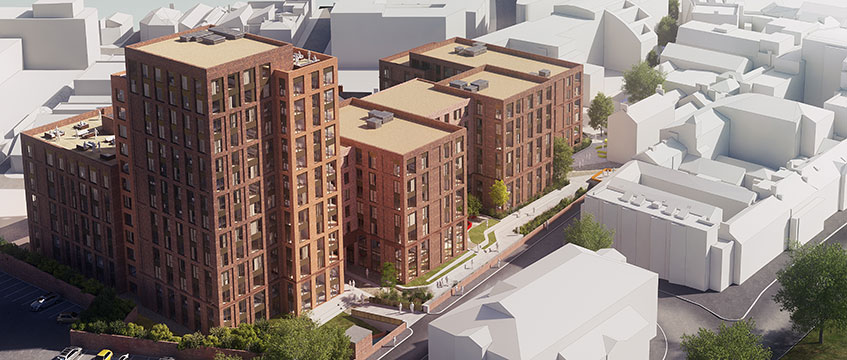Platform_ sees the regions ripe for BTR push
While some of the biggest names in residential property recoil at rent controls across the UK, such suggestions have not stopped Jean-Marc Vandevivere, chief executive of build-to-rent developer Platform_ from expansion.
Platform_, which recently picked up the site of a former John Lewis warehouse as its first location in Edinburgh, is the only BTR developer active in England, Scotland and Wales (Vandevivere calls Northern Ireland the “last piece of the puzzle” for the company).
In London, Vandevivere is more cautious. But it’s not just the lack of policy, obscure threats of controls or planning barriers. He sees the regions as ripe for BTR growth.
While some of the biggest names in residential property recoil at rent controls across the UK, such suggestions have not stopped Jean-Marc Vandevivere, chief executive of build-to-rent developer Platform_ from expansion.
Platform_, which recently picked up the site of a former John Lewis warehouse as its first location in Edinburgh, is the only BTR developer active in England, Scotland and Wales (Vandevivere calls Northern Ireland the “last piece of the puzzle” for the company).
In London, Vandevivere is more cautious. But it’s not just the lack of policy, obscure threats of controls or planning barriers. He sees the regions as ripe for BTR growth.
Discussing Scotland’s rental pressure zones rules, under which areas with rapid rent increases can have rent rises capped for existing residents, Vandevivere days the policy is clear and is not a risk for developers.
“Something really abnormal needs to happen for this to be put in place,” he says, adding: “From our point of view as an investor, there are a lot of ‘ifs’. There are a lot of checks and balances to make sure that it doesn’t stifle investment.”
‘Second generation’ BTR
Platform_ made its BTR debut converting office stock on smaller schemes. Backed by Westrock, it acquired a collection of sites in Bracknell, Exeter, Bedford, Crawley and Stevenage for schemes ranging from 64-185 homes, and later sold a majority stake to Invesco.
“That first portfolio of conversions allowed us to get up and running and able to learn very quickly,” says Vandevivere. ”We’ve been managing that for the last three years to inform our second generation of buildings.”
The company’s development model has now shifted to brownfield site acquisition, getting planning approval for larger schemes, building and selling. Platform_ will keep a stake in the initial scheme and redeploy funds with new acquisitions.
The company is focused on delivering its first new build schemes in Sheffield (335 homes), Glasgow (498) and Cardiff (206). The sites have a combined end value of £200m, the majority of which will be sold to institutional funds.
Demand from such funds is constantly changing, says Vandevivere. “What they are looking for is very specific – at what time, in which city. You need to match that exactly. And it needs to be ready – they won’t take any development risk.”
That means now the focus is on development of these regional city centre schemes, targeting the mid-market renter.
We want to be in the city centre, where things are happening and where you’re going to accelerate the regeneration of an area
Accelerating regeneration
“Our [aim] is that when we choose a location and open a building it will be affordable for more than 50% of the local population,” says Vandevivere.
Platform_ is developing in regions where the market has been slow to recover from the financial crisis, leading to a shortage of supply and a gap in the market.
Vandevivere says these locations benefit from growing populations from surrounding regions, as well as student retention and a high expectation of quality accommodation. “We want to be ahead of the curve and go into those regional locations,” he says.
“When you go into the cities in the regions you have an opportunity. We want to be in the city centre, where things are happening and where you’re going to accelerate the regeneration of an area.”
The regions have remained robust, Vandevivere says, but to date, the developer has steered clear of London as land values slide in the capital, construction costs rise and asset end values remain relatively static.
Vandevivere adds: “There have been a lot of question marks and headwinds in London, because a lot of things are changing.”
And while Platform_ has learned to work with rent controls in Scotland, the uncertainty around policy and lengthy planning processes in the capital still poses a challenge.
“For investors it’s always the same thing: you want stability and clarity. In real estate, that’s how you make decisions and contribute to providing more homes.”
To send feedback, e-mail emma.rosser@egi.co.uk or tweet @EmmaARosser or @estatesgazette











